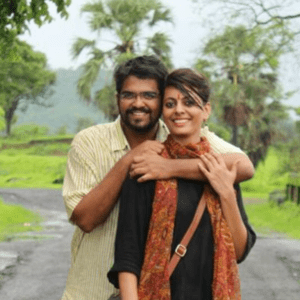Chief Justice of India DY Chandrachud, at the helm of a significant hearing on the legalization of same-sex marriage in India, addressed critical concerns surrounding the matter. This landmark legal proceeding involves the anticipated issuance of a ruling today by the Supreme Court, focusing on petitions advocating for the legal recognition of same-sex marriages.
The Constitutional Bench:
The five-judge bench, under the leadership of Chief Justice DY Chandrachud and comprising Justices Sanjay Kishan Kaul, Ravindra Bhat, Hima Kohli, and PS Narasimha, has been meticulously assessing the legal aspects associated with the Special Marriage Act (SMA) and the Foreign Marriage Act. It is essential to clarify that the bench’s examination pertains to the legal framework surrounding these acts, and it does not imply immediate recognition of non-heterosexual marriages.
During the proceedings, Chief Justice Chandrachud expressed a critical perspective, asserting that if the Special Marriage Act were to be struck down, it would essentially regress the country to a time before independence. This statement underscores the profound significance and implications of the Court’s decision on this matter.
The Chief Justice underscored the paramount importance of Parliament in determining whether amendments to the Special Marriage Act should be enacted to permit same-sex marriages. He firmly articulated that the judiciary should exercise caution and restraint in venturing into legislative matters.
It is pertinent to note that the Indian government has consistently opposed the legalization of same-sex marriages, contending that this decision falls within the jurisdiction of the parliament. The debate has, in part, centered on the perception of same-sex marriage as an issue concerning urban elites. In response to this viewpoint, Chief Justice Chandrachud ardently defended the natural and universal character of queerness, emphasizing that it is neither confined to urban areas nor limited to elite individuals.

Awaiting the Outcome:
Furthermore, Chief Justice Chandrachud championed the principles of equality and non-discrimination, asserting that no individual should be denied the right to marry based on their sexual orientation. He called upon the government to move forward with the committee it established to address the practical requirements and challenges faced by same-sex couples.
The ongoing legal deliberations have ignited significant public interest and discussions. As this historic case unfolds, it has the potential to reshape societal norms, further the cause of LGBTQ+ rights, and contribute to the broader conversation about inclusivity, equality, and individual freedoms in India.



The significance of this legal decision, particularly in the context of India’s evolving stance on LGBTQ+ rights and recognition, is a matter of considerable interest and importance. The public’s views on this matter are diverse and multifaceted, and the comments section serves as a platform for sharing opinions and engaging in meaningful discourse on the subject.
















What do you think?
It is nice to know your opinion. Leave a comment.